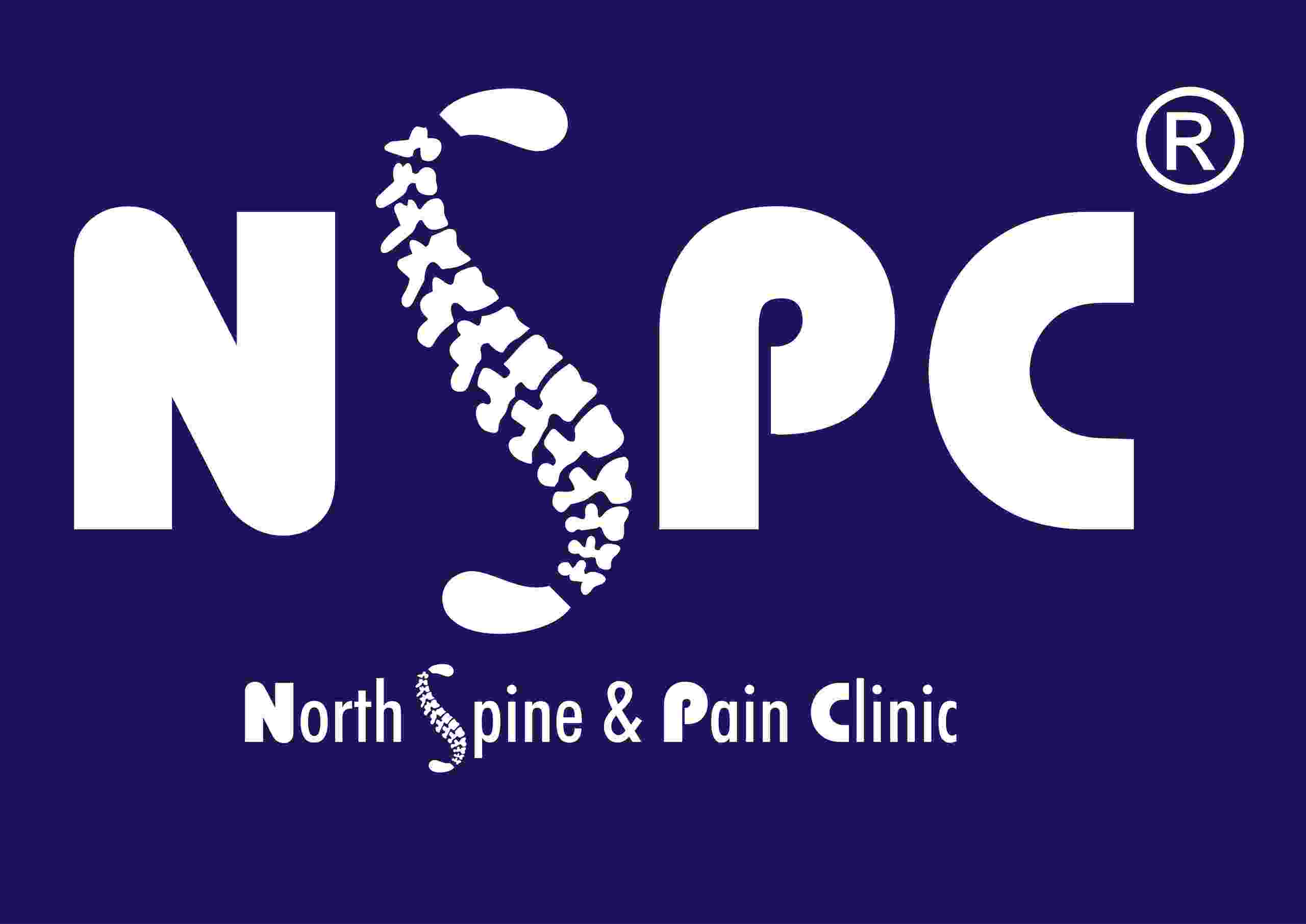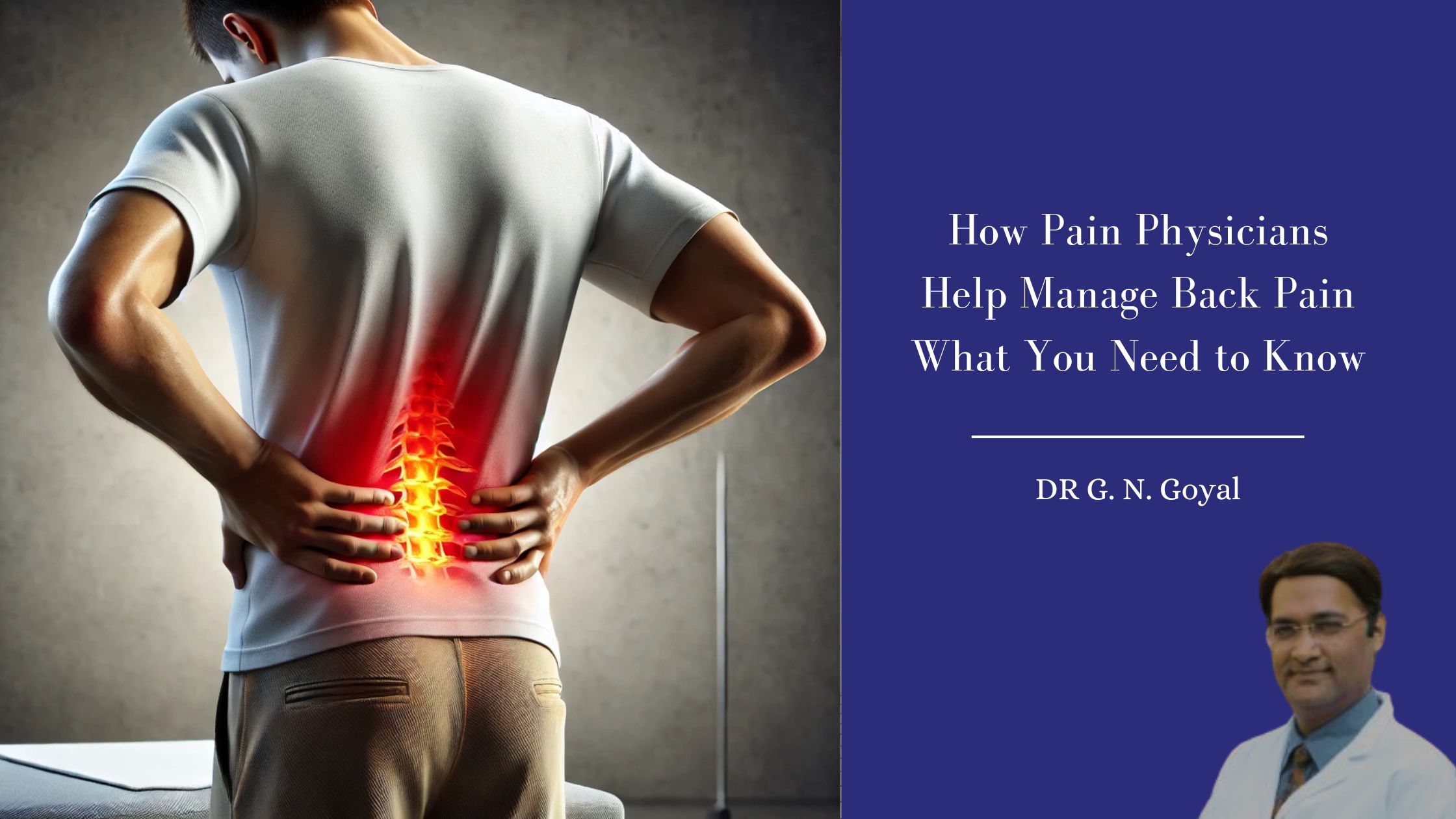How Pain Physicians Help Manage Back Pain: What You Need to Know
How Pain Physicians Help Manage Back Pain: What You Need to Know
Back pain is an all-too-common issue, affecting people of all ages and lifestyles. Whether it’s caused by an injury, poor posture, or a long-standing medical condition, back pain can disrupt daily activities and diminish quality of life. For those suffering from persistent back pain, consulting a lower back pain specialist or back pain doctor can make a significant difference in finding relief. In this blog, we’ll explain how back ache specialists and pain physicians help manage and treat back pain effectively.
What Does a Back Pain Doctor Do?
A back pain doctor specializes in diagnosing and treating pain that originates from the disc in backbone, bones of spine, joints of spine, back muscles, back nerves, ligaments or surrounding structures. They are experts at pinpointing the exact cause of discomfort and developing a personalized treatment plan for lasting relief. If you’re experiencing anything from mild to severe discomfort in your back, consulting a back ache specialist is essential for proper diagnosis and care.
When Should You See a Lower Back Pain Specialist?
Seeing a lower back pain specialist is crucial if you experience any of the following symptoms:
– Persistent back pain that doesn’t improve with over-the-counter treatments.
– Sharp or shooting pain that travels down the legs or into the buttocks.
– Difficulty with movement or performing everyday tasks due to back stiffness.
– Numbness, tingling, or weakness in your limbs.
– Pain that worsens after sitting, standing, or lifting heavy objects.
Seeking help from a back pain doctor or back ache specialist early can help prevent the pain from becoming a chronic issue and can also reduce the risk of long-term complications.
How Pain Physicians Diagnose Back Pain
When you visit a back pain doctor, they will begin by conducting a thorough evaluation. The diagnostic process typically includes:
– Physical Examination: The back ache specialist will check for muscle weakness, spinal misalignment, or nerve compression that could be contributing to your pain.
– Imaging Tests: X-rays, MRI scans, or CT scans help the doctor visualize the spine’s structure and identify issues like herniated discs, arthritis, or other abnormalities.
– Patient History: Understanding your medical history and lifestyle habits can help the lower back pain specialist identify potential causes of your pain.
How Do Pain Physicians Treat Back Pain?
Pain physicians and specialists employ a variety of treatments to alleviate back pain and improve mobility. Some of the most common treatment options include:
1. Medications for Pain Relief
– A back pain doctor may prescribe over-the-counter pain relievers, muscle relaxants, or anti-inflammatory medications to reduce pain and inflammation.
2. Physical Therapy
– Many back ache specialists recommend physical therapy to strengthen the muscles around the spine, improve posture, and alleviate strain on the back.
3. Chiropractic Care
– Some patients benefit from spinal adjustments or chiropractic treatments, offered by back ache specialists, to correct spinal misalignment and alleviate discomfort.
Above mentioned treatments must provide pain relief within 4 – 6 weeks, otherwise you need one of the following treatments.
– Non-surgical, minimally-invasive, keyhole treatments, also known as MIPSI techniques are the latest and safest treatments for back pain. These are performed by experienced and well qualified back pain specialist doctors after properly diagnosing the root cause of your back pain. Mostly these treatments can be done in day care settings. If done timely, these treatments can give faster and long lasting relief from back pain or in many instances can provide cure from back pain in more than 95% patients. Epidural injections, laser injections, neuroplasty, nerve decompression, Disc decompression are some of the basic procedures, that can help in treating back pain.
5. Surgical Interventions
In severe cases ie in less than 1% patients, surgery may be necessary. Procedures like laminectomy, spinal fusion, surgical endoscopy or disc replacement, under anaesthesia are options for those who do not respond to other treatments.
The Benefits of Consulting a Back Pain Doctor Early
There are numerous benefits to consulting a back pain doctor as soon as you notice symptoms, including:
– Accurate Diagnosis: A back ache specialist can correctly identify the source of your pain, which helps in developing the most effective treatment plan.
– Tailored Treatment Plans: Rather than relying on generic treatments, a back pain doctor will design a plan specific to your needs, whether it involves medication, physical therapy, or specialized procedures.
– Prevention of Chronic Pain: Early intervention can prevent the condition from worsening, reducing the likelihood of developing chronic back pain.
Back pain doesn’t have to be a lifelong struggle. If you’re dealing with lower back pain or any form of back ache, consulting a back pain doctor or lower back pain specialist can help you achieve lasting relief. Whether through non-invasive treatments, therapy, or advanced procedures, a back ache specialist has the expertise to guide you on the road to recovery. Don’t wait for the pain to get worse—take action and consult with a pain physician to regain control over your health and well-being.

